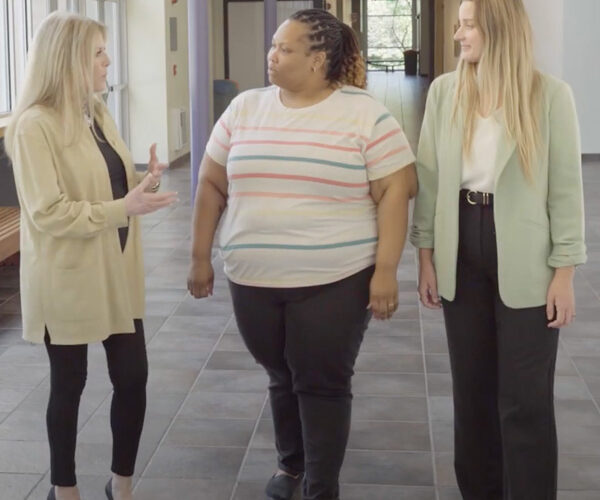By Jackie Yahr, Esq., Assistant Vice President, Charitable Planning
The BASICS on Charitable Gift Annuities – Dependable in Both Bull and Bear Markets
Charitable Gift Annuities (CGAs) are a great option for you and your charitably minded clients in both stable and unstable economic climates. And with rates set to rise as of July 1, 2022, a CGA is a great combination of a charitable gift and an investment opportunity.
Here are some BASICS about CGAs:
B – Benefits The Associated and your Clients:
- Why a CGA? If your clients want to support The Associated as well as receive an income stream, Charitable Gift Annuities (CGAs) can make sense.
- Donative intent. Charitable intent should be the driver, and for your clients where the shoe fits, CGAs can be great tools as part of a well thought out long-term financial plan. Establishing a CGA enables your clients to “pay it forward” – experiencing the joy of giving while receiving fixed income during their lifetimes.
- How CGAs Work. A CGA is a contract between an individual and The Associated that provides fixed payments to one or two annuitants for life and provides for the future of The Associated. The particular fixed payout rate is based on the precise age(s) of the annuitant(s) at the time of the irrevocable contribution. CGAs are partly the purchase of an annuity and partly a contribution to charity, entitling your clients to an income tax charitable deduction. When the CGA terminates, the remaining principal is used by The Associated for its endowment or purposes the donor designates.
- Benefits to Your Clients. In addition to fixed income for life, your clients can receive an immediate partial tax deduction, and the potential for part of the income stream to be tax-free. Many Associated donors who establish CGAs have established multiple CGAs over the years – in fact, one donor has a record number of 7 CGAs, showing how attractive these split-interest gifts can be for both the donor and The Associated!
A – American Council on Gift Annuities (ACGA):
- Rates and Rate Changes. Charitable annuity rates are generally lower than commercial annuity rates, because the primary purpose of the annuity is to provide funding for the charity. According to the American Council on Gift Annuities (ACGA), its suggested rates are designed to produce a target gift for charity at the annuity’s termination equal to 50 percent of the funds transferred for the annuity. On July 1, 2022 new higher maximum recommended ACGA rates will go into effect.
- CGA Age Requirements. The Associated requires that income beneficiaries for immediate payment CGAs must be at least seventy-five (75) years old at the time annuity payments commence. If payment is to be deferred, each income beneficiary needs to be at least sixty-five (65) years old, with payments starting at age seventy-five (75) or older. The older the designated annuitants are at the time of the gift, the greater the fixed payments The Associated can agree to pay.
S – Simple Contract:
- A Simple Two-Page Written Contract. A CGA is evidenced by a written contract, whereby your client irrevocably transfers money or property to The Associated in return for its promise to pay your client, another individual or both, fixed and guaranteed payments for life.
- Residuum to Support The Associated. Another key provision is a statement about how the residuum remaining when the annuity terminates will support The Associated.
- Types of Annuities Offered. The Associated offers several “flavors” of annuities, namely immediate payment CGAs and deferred payment CGAs (payments must be deferred at least one year from date of gift. Please contact Jackie Yahr if you would like us to run specific calculations for your clients, including comparisons of the annuity types offered.
I – Income Stream:
- CGA Examples. By way of example, assume your 75-year-old client wants to fund a gift annuity with $100,000 in cash in June 2022 (*rates will increase to 6% for a 75-year-old in July 2022).
- An Immediate payment CGA will currently provide your client with fixed lifetime payments of 5.4% of the amount transferred for his/her lifetime. $3,764 of this annual payment of $5,400 would be tax free income to your client. Your client’s charitable deduction in the year of the gift would be an estimated $53,361 (with a potential 5-year carryforward if the amount of the deduction exceeds the charitable deduction limitation in the year of the gift).
- Deferred CGA. If payments are deferred to age 80, your client will receive 7.4% of the amount transferred for his/her lifetime. $3,567 of the annual $7,400 payment would be tax free income to your client. Your client’s charitable deduction in the year of the gift would be an estimated $66,501 (with a potential 5-year carryforward).
- Fixed vs Variable Income. For your clients who are conservative investors seeking fixed-income choices to diversify their portfolios, CGAs are one of the available options that you might consider recommending to them.
C – Charitable Deduction:
- How the Deduction Works. The donor is entitled to income, gift and/or estate tax charitable deductions for the charitable contribution, calculated as the difference between the amount of money or the fair market value of long-term securities transferred and the present value of the annuity. The present value of the annuity is based on the life expectancy(ies) of the annuitant(s), the frequency of payments and timing of payments and the IRC §7520 rate effective at the time the gift annuity is entered into.
- AGI Limitations. Deductions for gifts of cash will be limited to 60% of your client’s AGI and deductions for gifts of long term appreciated securities will be limited to 30% of your client’s adjusted gross income. Your clients may, if necessary, take unused deductions over the next five years, subject to the same 30% or 60% limitation.
- Tax Treatment of Payments. In most cases, part of each payment is tax-free, increasing each payment’s after-tax value. If your client gives appreciated property, they will pay capital gains tax on only part of the appreciation. In addition, if your client names him/herself as the first or only annuitant the capital gains tax will be spread out over many years rather than be all due in the year of his/her gift.
S – Securities or Cash:
- CGA Funding Assets. The Associated accepts gifts of cash and publicly traded securities to fund CGAs.
- Gift Value Minimum. Gifts to fund a CGA with The Associated must be a minimum of ten thousand dollars ($10,000).

The Associated’s professionals remain ready to work with you and your clients on how to incorporate charitable planning like a Charitable Gift Annuity into your planning conversations and how to help maximize the financial and charitable benefits of any such planning strategies available to your clients.
For more information, contact Jackie Yahr at 410-369-9248 or jyahr@associated.org.
This is for informational purposes only and should not be construed as legal, tax or financial advice. When considering gift planning strategies, your clients should always consult with their own legal and tax advisors.
Subscribe to our newsletter
The Associated is a home for everyone in the Baltimore Jewish community. We offer several email lists to help people find a community, engage with their peers and support Jewish journeys around the world.
Join Our Mailing ListAdd Impact to Your Inbox
Sign up for our newsletter
Subscribe to our newsletter
The Associated is a home for everyone in the Baltimore Jewish community. We offer several email lists to help people find a community, engage with their peers and support Jewish journeys around the world.
Join Our Mailing List









 Please Wait while we loading your video.
Please Wait while we loading your video.